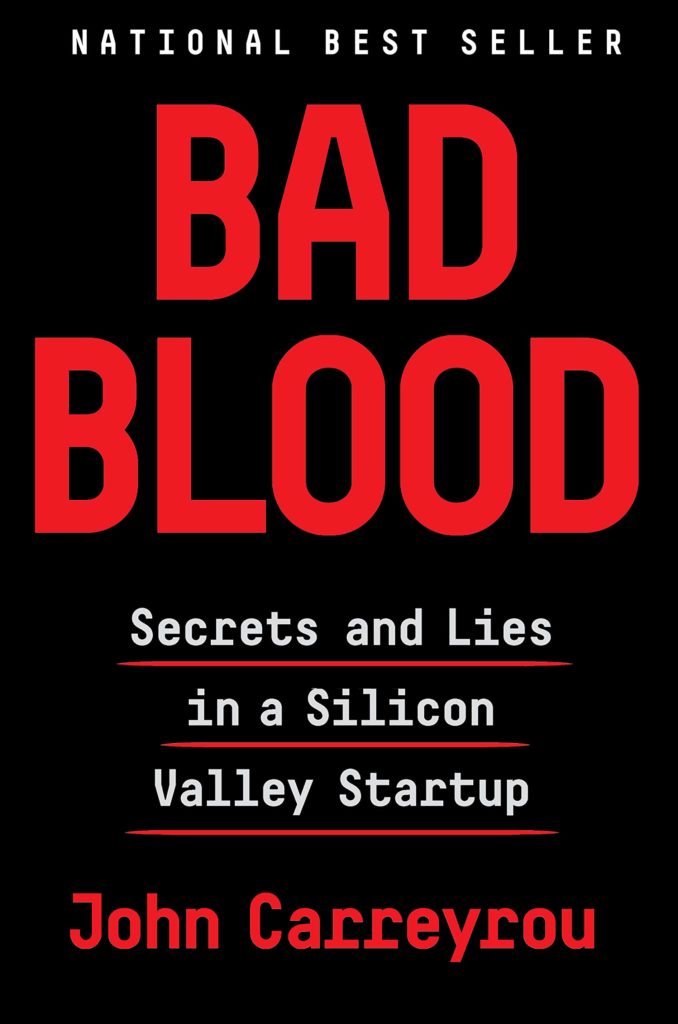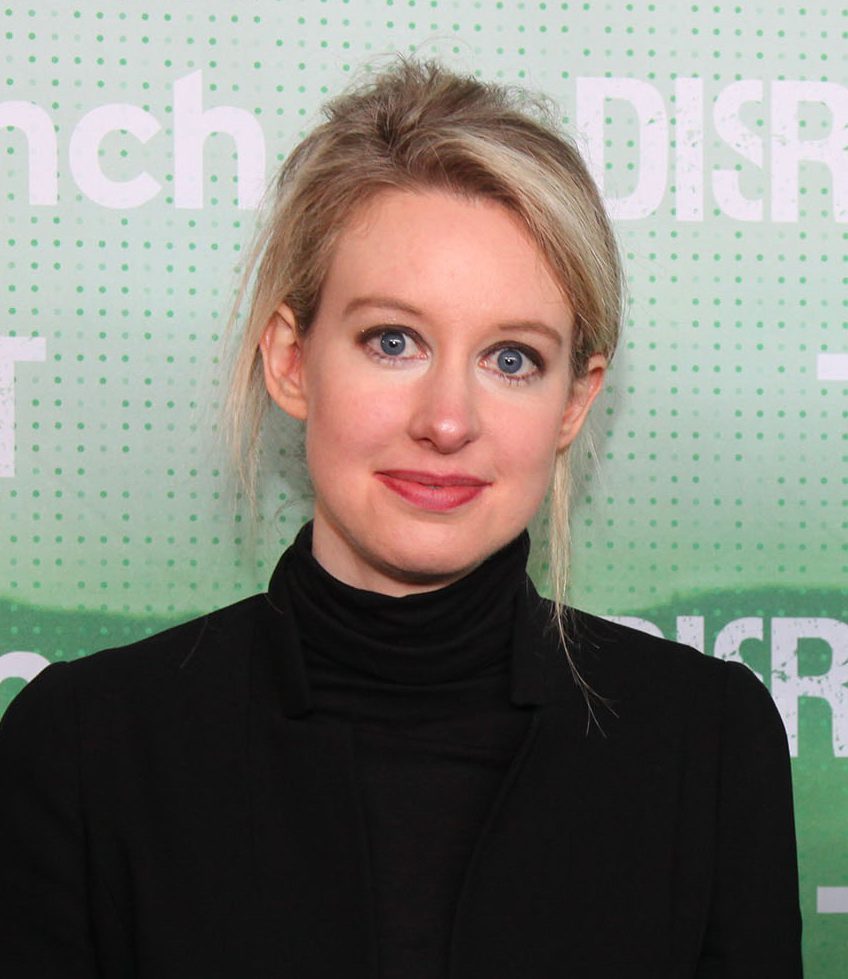‘Bad Blood: Secrets and Lies in a Silicon Valley Startup’
By • April 6, 2019 0 925

WHAT HAPPENS WHEN A NEFARIOUS STARTUP PLAYS GAMES WITH PEOPLE’S HEALTH?
As a little girl, Elizabeth Anne Holmes was asked what she wanted to be when she grew up. “I want to be a billionaire,” she said. “Wouldn’t you rather be president?” “No,” she said. “The president will marry me because I have a billion dollars.” This youngster knew what she wanted, and she got it. By the time she was 30, she was worth $4.6 billion. She dropped out of Stanford after two years to start her own company and, by 2014, as CEO and founder of Theranos — her combination of “therapy” and “diagnosis” — Holmes was hailed by Forbes as “the youngest woman to become a self-made billionaire.”
She had announced that she’d devised technology to test blood with a painless pinprick rather than the painful needle in the arm that had been used for years. Her company slogan: “One tiny drop changes everything.”
Her technology promised to provide a complete blood workup for at least 100 tests, including glucose tolerance, electrolytes, diabetes, kidney function, herpes, HIV, Zika, Ebola and all types of cancer. She said her technology could diagnose heart disease and impending strokes — all with a quick and easy fingerstick.
This scientific breakthrough promised to revolutionize health care. Walgreens and Safeway signed up to provide Theranos’s service to their customers, while the Department of Defense wanted it for servicemembers around the world. By transforming lab testing with innovative technology, Holmes seemed to have discovered the holy grail of microfluidics, which had bedeviled research laboratories for decades.
Fortune canonized her on its cover because she pledged that her health care company would do good and help humanity. The Wall Street Journal described her as “the next Steve Jobs or Bill Gates.” High praise followed from the New York Times and the New Yorker, along with a fawning Charlie Rose interview on PBS.
Holmes gave massively popular TED talks and was bolstered by an impressive board of directors that included two former secretaries of State: George Shultz, who hosted her 30th birthday party, and Henry Kissinger, who tried to fix her up with dates. Other members included former Georgia Democratic Sen. Sam Nunn, former Tennessee Republican Sen. Bill Frist, former Navy Adm. Gary Roughead and former Secretary of Defense James Mattis — all older men, but none with a background in bioscience.
The fact that Holmes was a young woman in the male-dominated world of Silicon Valley played to her advantage, which makes it interesting to note that she did not choose one woman to sit on her board.

Elizabeth Holmes in 2014. Photo by Max Morse for TechCrunch
That board of prestigious men made Theranos a magnet for multimillionaire investors like Betsy DeVos and Rupert Murdoch. By 2017, Holmes’s private company was valued at $9 billion — that’s b-for-boy billion. In the parlance of Silicon Valley, Theranos was a “unicorn,” a privately held startup valued at over $1 billion. The ride- hailing app Uber is the poster child for unicorns.
Today, Elizabeth Holmes is the poster child for corruption, the epitome of degradation. Her company has cratered under the staggering weight of her deceit, all of which is documented in riveting detail by John Carreyrou in “Bad Blood: Secrets and Lies in a Silicon Valley Startup,” soon to be a motion picture starring Jennifer Lawrence.
Holmes and her business partner, Ramesh “Sunny” Balwani, also her lover, have been indicted for criminal fraud and could face up to 20 years in prison. Carreyrou, a Pulitzer Prize-winning investigative reporter for the Wall Street Journal, charts the rise and fall of Holmes as a hungry young woman who saw herself as Marie Curie, the only female scientist to win two Nobel Prizes. A zealot, Holmes told employees she was building a religion; if they did not believe, they had to leave.
Many did, but those who were fired or retired were forced to sign life-shackling nondisclosure agreements, swearing never to reveal anything about their employment or employer. Holmes retained David Boies, one of the country’s most famous lawyers, to enforce those contracts, which, for years, shielded what was going on at Theranos — how the company threatened employees, cheated on proficiency tests, diluted blood samples, misled inspectors, masked malfunctions, reported inaccurate readings, used nonfunctional devices and ignored quality-control failures.
The company even built a fake laboratory in 2015 to impress then-Vice President Joe Biden, who later raved to the press that Theranos was “the laboratory of the future.”
As Carreyrou emphasizes, people’s lives were at stake because most physicians rely on blood tests for diagnosis. If healthy individuals are misdiagnosed, they can be subjected to costly and precarious treatments; if individuals with life-threatening diseases go undiagnosed, they can die.
If you believe in whistleblowers, as I do, and genuflect to the First Amendment, you’ll applaud John Carreyrou and “Bad Blood “ for turning over a slimy log in Silicon Valley and showing us what slithered out.
Georgetown resident Kitty Kelley has written several number-one New York Times best-sellers, including “The Family: The Real Story Behind the Bush Dynasty.” Her most recent books include “Capturing Camelot: Stanley Tretick’s Iconic Images of the Kennedys” and “Let Freedom Ring: Stanley Tretick’s Iconic Images of the March on Washington.”

